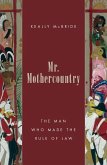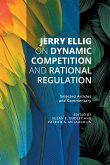The concept of 'the public interest' is often used in legal and political discourse, lending an air of legitimacy and respectability to exercises of power. However the term is rarely defined in any meaningful sense. Even where it has the appearance of a term of art in legal or regulatory usage, it may, in reality be no more than an empty vessel, waiting to be filled with whatever values the user wishes. This lack of definition renders the concept vulnerable to capture by interest
groups, quite contrary to the collective values that the term seems to imply. This book considers whether these problems with the concept's current usage are inevitable and inherent, or whether it is possible to reinvigorate it.
Feintuck begins by considering a variety of abstract concepts of public interest from the literature of law, political science, and economics. This exploration suggests a close relationship between a meaningful model of public interest and central democratic values such as citizenship. However the dominant models fail to reflect these expectations satisfactorily. Using a series of case-studies of current regulatory activity in Britain and the USA, Feintuck then goes on to explore how the
concept is use in practice. Finally, the actual and potential utility of the concept of public interest is evaluated. Feintuck then considers the legal forms in which the public interest might be manifested in order to offer legitimate and effective protection to vulnerable democratic values by the
regulation of private power.
Hinweis: Dieser Artikel kann nur an eine deutsche Lieferadresse ausgeliefert werden.
groups, quite contrary to the collective values that the term seems to imply. This book considers whether these problems with the concept's current usage are inevitable and inherent, or whether it is possible to reinvigorate it.
Feintuck begins by considering a variety of abstract concepts of public interest from the literature of law, political science, and economics. This exploration suggests a close relationship between a meaningful model of public interest and central democratic values such as citizenship. However the dominant models fail to reflect these expectations satisfactorily. Using a series of case-studies of current regulatory activity in Britain and the USA, Feintuck then goes on to explore how the
concept is use in practice. Finally, the actual and potential utility of the concept of public interest is evaluated. Feintuck then considers the legal forms in which the public interest might be manifested in order to offer legitimate and effective protection to vulnerable democratic values by the
regulation of private power.
Hinweis: Dieser Artikel kann nur an eine deutsche Lieferadresse ausgeliefert werden.








